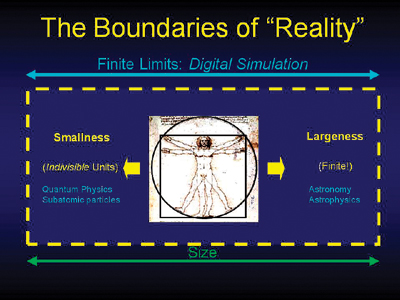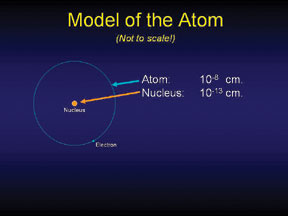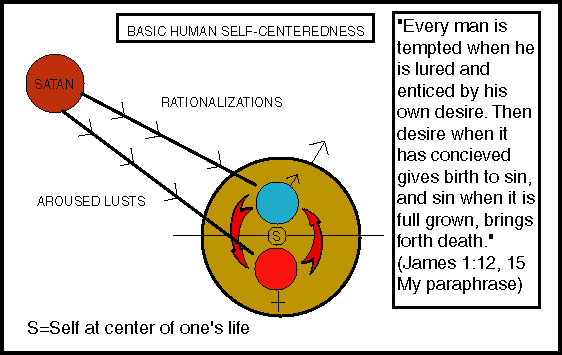

I remember well the Great Depression, World War Two, the Korean and Viet Nam Wars, and all that followed. It’s been a wild ride! History is going somewhere. While many see time, chance, and evolution as the driving forces in the world, I have found a way better paradigm in the Bible. I’m further anchored by the fact I have enjoyed a personal relationship with the Creator, Jesus Christ, and the Holy Spirit, for more than fifty years now. I am not a recent convert.
There are many subjects I can rant about today, but I suppose one of the biggest changes I have seen in my life concerns marriage, sexual expression, and family structure. My observations are my own perceptions and offered here for fellow searchers who may be looking for something deeper than a mere secular (or religious) world view.
My parents were professing Christians when I was a boy. Sexual expression was for marriage only. Divorce was taboo. Abortion was rare and limited only to situations in which the mother’s health was in jeopardy. There were glaring discrepancies back then of course, and we kids were the first to spot these on our radars. For example, an unmarried young man was “weird” if he insisted on sexual abstinence before marriage. Virgin girls were highly prized. Parents did not, as a rule, sit their sons down for “the talk” at puberty, so most of us learned on our own about sex from our peers. We went on to college piling up advanced degrees but never learning which way was up.
For instance, what happens when I die? Is there any purpose to life or is all meaning generated by experience, by trial and error? Are there no moral absolutes?
Marriage as an institution back then was sacred even when the wedding had been hypocritical or feigned. Great expense and social pressure accompanied important (“royal”) weddings, as if the ceremony alone guaranteed happiness, bliss, and flawless offspring. When a wedding took place, two families came together and bonded across cultural divides, to one degree or other. So marriage was a healing, stabilizing social institution.
Therefore a healthy nation (it was widely believed)--was assumed to be built around monogamous marriage, life-long fidelity, and controlled sexual behavior. In this scenario children were special and usually sought after. Parents knew they had to raise their kids “right,” knowing it would be many years before offspring would become productive to society, paying back the society as well as parents. All sexual expression outside of marriage was assumed sinful, but there were no standards once you were married, apparently.
We were also more law-abiding then. I was genuinely patriotic, a loyal citizen, and fairly well informed about our national heritage and our history. “In God we Trust” was universal, pretty much. Law and Order were prized. The Courts were assumed just, good churchgoers went to heaven, and bad people went to hell. Certainly living in America was a great privilege.
The “fabric of society” is radically different now. Important cultural revolutions have swept through society since World War 2, especially. Many of my friends have kept track of these and can expound by the hour on what has changed and what remains. I’ll assume here that you the reader are well read, well informed, and hopefully not carried along every instability in the social fabric. Hopefully you are looking and hoping for better days to come?
The biggest change in fifty years, I believe, has been the loss of absolutes and the decline of belief in any absolute — including God. We had been given permission, it seems, to live pretty much as we please.
As near as I can tell, most men and women under 30 or 40 years old are apparently sexually active and have been since puberty. The biological sexual drive can’t be turned off, it is said, once one enters adolescence. Masturbation is considered normal and desirable, that is, between hookups. “Hookups” can be either straight or gay according to one’s preference. Marriage is cool but there are few role models anywhere. Mom and Dad “certainly did not have their act together and besides they have both divorced and remarried now.” “Religious people I know live under a guilt trip so I am not religious.” “It’s cool for you to live as you please but don’t lay any guilt trip on me.” “Moral standards are relative; there are no absolutes.”
That the world has changed since 1950 is not disputed. Some see that as progress, or evolution at work. I don't. I believe in absolutes because I have been convinced by evidence from a higher dimension, namely because Jesus Christ has been real in my life since 1962. My convictions are Biblical and experiential. Here are some of my thoughts about the universe. I am adding various links which hopefully some of you will read in the interest of thoroughness. My friend, the late Chuck Missler often said, "Whatever you do, don't take my word for anything I say. Do your own homework."
A classic message from Gordon Dalbey “Healing Father Wounds” has relevance for all of us—especially at this time in human history.

The Uniqueness of Creation Week
Overestimating Science
The Ruin of Creation
The Limits of Science

My first TV was black and white but that did not last very long. Einstein’s Theory of Relativity shook me up in high school. I knew I wasn’t living in Kansas anymore. My first encounter with an Absolute took place 57 years ago when I took a big chance and invited Jesus Christ into my life. It seemed ludicrous at the time, yet I had met others by then who insisted they knew Jesus personally and were living high quality lives.
I was told at the time by my new Christian friends that Jesus waits for our permission before invading our space-time domain. Sure enough, that’s been my everyday experience ever since. Jesus is a perfect gentleman even though He owns the whole cosmos and is kind even to His enemies.
I now believe the universe was created to be an orderly, harmonious place. Somehow man is located at the mid point between a microcosm of order and fine tuning extending at least 31 orders of magnitude (factors of ten) smaller than man’s scale (a few meters).
 The Boundaries of our Reality by Chuck Missler
The Boundaries of our Reality by Chuck Missler
Whence our Reality by Chuck Missler
Looking from the microcosm the macrocosm continues outward for at least 26 orders of magnitude bigger.
The observable universe is thus a sphere with a diameter of about 28.5 gigaparsecs
(93 billion light-years or 8.8×1026 meters).
Diameter: 8.8×1026 m (28.5 Gpc or 93 Gly)
Age: 13.799±0.021 billion years
Density (of total energy): 9.9×10−27 kg/m3
(equivalent to 6 protons per cubic meter of ...
Mass (ordinary matter): 1.5 x 10 53 kg (Wikipedia)



Actually there is good reason to believe that much of the created universe resides in space-time regimes we can not presently observe, measure, explore. Vast reaches of the spiritual realm, (“the heavenly places”) are hinted at in the Bible. As one gains appreciation of the Lord Jesus and the vastness of the real universe, earth is soon seen as cramped, overcrowded, and very much damaged. The subjects of suffering, sin, dying, and death are subjects of much revelation in the Bible! All this should persuade us to pay attention to Jesus every day.
Naively we know we grow up believing that we live in a rather confined space or cage. We don’t know exactly how we got here but we know we began as babies, grow up and die within a hundred years or less. Neither is the world a safe place! All sorts of flawed explanations about our existence and destiny assault us from the first grade onward.
It’s terribly dangerous down here. But most of us think we are special—bad things can’t happen to us. Whoever I am, I am the most important being in the universe whether others acknowledge that or not. Reality is the sum total of my life-experience, I deserve to live forever. But the way of escape eludes us--all because wholeness and everlasting life is found only in Jesus Christ.



![]()
All these notions from "me, myself, and I" are only partially true about the universe. They will quickly be displaced when I take my last breath or am killed in a crash. Most of who I really am is software not hardware. This is discoverable as soon as I become aware that our Creator has given us a huge body of information from outside the system of observable reality. Jesus is “Truth focused.” He is alive now and available. We are invited to know Him exactly as we hope to know friends, family,and lovers.
"The teaching of the New Testament is that now, at this very moment, there is a Man in heaven appearing in the presence of God for us. He is as certainly a man as was Adam or Moses or Paul; he is a man glorified, but his glorification did not de-humanize him. Today he is a real man, of the race of mankind, bearing our lineaments and dimensions, a visible and audible man, whom any other man would recognize instantly as one of us. But more than this, he is the heir of all things, Lord of all lords, head of the church, firstborn of the new creation. He is the way to God, the life of the believer, the hope of Israel, and the high priest of every true worshiper. He holds the keys of death and hell, and stands as advocate and surety for everyone who believes on him in truth. Salvation comes not by accepting the finished work, or deciding for Christ; it comes by believing on the Lord Jesus Christ, the whole, living, victorious Lord who, as God and man, fought our fight and won it, accepted our debt as his own and paid it, took our sins and died under them, and rose again to set us free. This is the true Christ; nothing less will do." (A.W. Tozer) |

The created universe macrocosm and the microcosm are indeed orderly and show evidence everywhere of design. Yes, God is far more intelligence than the sum total of all of mankind. Several recent articles call attention to the deep polarity between the sexes since the beginning.
One of the biggest challenges to Christians who would argue for a notion like “biblical manhood and womanhood” is that the very idea sounds strange to modern audiences. It often sounds like Christians are trying to impose a sort of playacting or subjective role-playing on others.
“Biblical sexuality is normal because it’s just how God made the world. Biblical sexuality is natural.”
Yet being a man or a woman shouldn’t be a riddle, wrapped in a mystery, hidden inside an enigma. No, if “biblical manhood and womanhood” is going to genuinely persuade people today, Christians have to show that it’s normal. Not normal judged by the changing standards of society, of course, but normal in the sense that it makes sense of the way the world actually is. Biblical sexuality is normal because it’s just how God made the world. Biblical sexuality is natural.
But how do we demonstrate this? Stereotypes and anecdotes won’t work. We need something more. And this is where natural revelation is our friend.
The term nature may bring to mind National Geographic or The Nature Channel. This isn’t wrong, but it’s only one subset of what Christians mean by natural revelation. Yes, natural revelation includes creatures like the horse (Proverbs 26:3) and the ant (Proverbs 6:6), and it includes aspects of creation like the stars and the heavens themselves (Psalm 19:1). We can even learn about God’s “invisible attributes . . . in the things that have been made” (Romans 1:20).
But natural revelation also includes human nature — the basic knowledge of God, reality, even morality that is imprinted on every human heart (Romans 1:18, 32; 2:14–15). The apostle Paul can even appeal to nature when teaching men and women how to dress and interact with the opposite sex in a public social setting (1 Corinthians 11:14).
When Christians argue for “natural revelation,” what they mean is that God has created the world, including humans and human nature, in a way that it is intelligible, durable, and consistent. After the fall, nature is certainly marred, and sinners abuse it, but the message of redemption is not a salvation from nature or a rejection of it, but rather a restoration of the original goodness of nature and the proper ordering of it to its original good end — the worship of and communion with the triune God. And biblically speaking, most people can still recognize nature and what it teaches. It can’t lead them to salvation, but it does keep them accountable.
“Nature teaches us that ‘man’ and ‘woman’ are real categories and not social constructs.”
So, for our conversation about manhood and womanhood, nature teaches us that “man” and “woman” are real categories and not social constructs. Manhood and womanhood are real created constitutions. While there is a long and layered conversation about this topic in the history of philosophy, I would like to argue for this claim by highlighting some of the recent findings in the sciences. You might be surprised to know what’s out there. Even though we live in an age of secularism, reality is a stubborn thing.
Recent breakthroughs in human genetics have made it clear that humanity is fundamentally dimorphic, which is to say, human nature is irreducibly male and female. Writing in 2001 for the Institute of Medicine (US) Committee on Understanding the Biology of Sex and Gender Differences, Theresa Wiseman and Mary-Lou Perdue concluded, “Males and females have partially different genomes.” This led them to call for “research on sex at the cellular level.” That call was taken up by Paula Johnson in 2013, who said, “Every cell has a sex — and what that means is that men and women are different down to the cellular and molecular level. It means that we’re different across all of our organs, from our brains to our hearts, our lungs, our joints” (quoted in Nancy Pearcey’s Love Thy Body, 196). So, at the bare minimum, nature teaches us that God created humans male and female.
This physiological difference between men and women is most obvious in the world of professional sports. As the transgender ideology has gained more social acceptance, athletes who are biologically and genetically male have begun competing in women’s sporting leagues, with predictable results. In at least one instance, the natural disparity was too much for even otherwise sympathetic onlookers.
Ultra-popular podcaster and mixed-martial-arts color commentator Joe Rogan protested that people with male bodies should not compete against people with female bodies. He argued that male bodies have denser bones, larger hands, and greater muscle mass. This set off a small controversy, but Rogan was supported by the science. Dr. Ramona Krutzik explained that Rogan’s comments were accurate. More than this, Dr. Krutzik pointed out that genetic and hormonal “imprinting” accounts for males having a significantly higher level of aggression than females. In addition to distinct anatomical features, men even have a different chemical makeup.
This point about male aggression has been noticed by social scientists as well. In 1973, Steven Goldberg published The Inevitability of Patriarchy, in which he argued that biological differences between men and women explained the preponderance of male leadership across social and political institutions. Importantly, Goldberg conducted a global study of diverse societies across the world. He was not limiting himself to “Western” patterns. He updated his argument in 1993 in Why Men Rule, emphasizing statistics from contemporary workplaces, but reasserting his main thesis. In a 1991 essay, he explains it this way:
It is precisely the male’s greater tendency to respond with dominance and attainment behavior to the cues of hierarchy and status that is rooted in neuroendocrinological differences between males and females. Loosely speaking, we can conceptualize this as a neuroendocrinologically rooted greater male competitiveness that is elicited by hierarchy or status when there is hierarchy or status differentiation. (When Wish Replaces Thought, 75)
For Goldberg, this means that there is scientific evidence to suggest that men are more attracted to conflict and competition, whereas women are more attracted to nurture and relationship-building. Men are more likely to skip the personal details and get down to the business at hand, whereas women want to get to know their conversation partner on a more intimate level. And Goldberg believes that this then explains why men tend to attain leadership and even dominance across society. It should be noted that Goldberg makes no ethical evaluation of this, and many of his observations could also be used to explain bad behavior. But what’s important is his identification and explanation of a steady general truth about men and women.
Such sentiments are surely striking, perhaps even offensive, and yet they keep showing up. Jordan Peterson, the popular psychologist and author, has made similar points. In his book 12 Rules for Life, Peterson says,
[Boys] are less agreeable (agreeableness being a personality trait associated with compassion, empathy, and avoidance of conflict) and less susceptible to anxiety and depression, at least after both sexes hit puberty. Boys’ interests tilt towards things; girls’ interests tilt towards people. Strikingly, these differences, strongly influenced by biological factors, are most pronounced in the Scandinavian societies where gender-equality has been pushed hardest: this is the opposite of what would be expected by those who insist, ever more loudly, that gender is a social construct. It isn’t. This isn’t a debate. The data are in. (293)
Instead of dominance, Peterson emphasizes agreeableness and disagreeableness. Boys have more tolerance for disagreeableness. Often, disagreeability is an expectation and a requirement for male social interaction. Peterson believes that this has profound implications for educating and mentoring boys and girls. They require different approaches, and they often need leadership and affection from different people.
“Apart from grace, nature will become cruel. Yet grace does not abolish nature, but rather restores it.”
Adolescent boys, especially, need affection from other males and older males, particularly their fathers, and they need to be challenged by competition and conflict, but in constructive rather than destructive ways. They don’t need to fight, but they do need to wrestle. Girls, on the other hand, need to be taught how to manage personal relationships and feelings like empathy in ways that are moderate and not all-consuming. They need to be taught how to give themselves to a relationship without being overtaken by it.
These two areas of emphasis are not mutually exclusive, as there are common moral truths in both, but the depth of their impact and the complexity of their social manifestation does indeed differ between the sexes. Peterson attaches a lengthy list of sources to back up his claims (on pages 377–378 in his book).
It is, of course, possible for various individual claims and studies to be challenged. Students of nature are not infallible. And exceptional cases are also possible. There are certainly some males and females who conform less to the norms explained above. But when the observer moves back from the trees to perceive the forest as a whole, a consistent picture emerges.
And for the Christian, this makes perfect sense. The various social expressions of masculinity and femininity demonstrate not only a neurological or chemical reality, but a creational reality. This is how God has made man and woman. Man is the head; woman is the body (1 Corinthians 11:3; Ephesians 5:23). This has physical, moral, and sociopolitical implications.
So, what does nature teach? It teaches us that men and women are real, and that men and women are different. It also teaches us that men and women have certain distinct anatomical, physiological, and psychological characteristics. For Christians, this means that they have different abilities. It also means that they have different spiritual opportunities and challenges.
If men are created by God for leadership and the assumption of sacrificial responsibility for the good of those under them, then we should expect that sin will twist these goals toward domination and conquest. Young men are easily led by their bellies instead of their chests. But the right way to correct such sinful inclinations is not to try to eradicate the drive for competition or even conflict. We should not try to emasculate men. Instead, the right way to correct a disorder is to reorder it, to point to the proper way for men to be men. And the same is true for women. Sin turns their virtues into their vices. Redemption, on the other hand, makes the crooked places straight. Pastors and Christian leaders should work with the grain of nature, disciplining and directing our anthropological attributes toward noble ends.
Christian pastors and teachers should not be afraid to talk about these specific aspects of reality. Natural revelation, properly understood, will actually expand our understanding of special revelation and bring us to a fuller, more nuanced, accurate, and effective teaching about men and women.
This has just been an introduction to a study that could consume a lifetime. What we see is that natural revelation is real. To quote Jordan Peterson, “The data are in.” And the data support the biblical teaching. The Bible teaches us more, of course. It teaches us that sinners will misuse nature in the selfish pursuit of gain and conquest. Apart from grace, nature will become cruel. Yet grace does not abolish nature, but rather restores it. God restores our original image most fully in his Son. Indeed, it is in and through Christian graces like self-sacrificial and spiritual communion that men and women can be the right kind of natural, truly human in Christ.
Steven Wedgeworth is associate pastor of Faith Reformed Presbyterian Church (PCA) in Vancouver, British Columbia. He is a board member for The Davenant Institute, and founder of The Calvinist International.


Does God Care about Gender Identity? compares the core beliefs and practices of the transgender movement with the fundamental truths expressed in Scripture, encouraging readers to live out their God-given identity.
The transgender revolution is sweeping. Deeper understanding of it requires us to consider three core beliefs that underly it and make it possible. Though often unarticulated, these beliefs are like the framing of a house, giving the transgender movement its present shape and stability.
We can’t understand the transgender movement if we don’t grasp how it relates to our culture’s obsession over the question Who am I?Traditionally, our identity was something we received, and it was therefore relatively stable. Who we are was understood as determined by family of origin, nationality, biological sex, religion, and perhaps occupation. These matters were largely “givens,” arising not from feelings or decisions but from realities outside a person’s control. Things have changed. Today, identity is a do-it-yourself project based on self-discovery and self-expression.1 This gives personal feelings and decisions pride of place, and it resists external constraint. “[Here is] a view of personhood,” Carl Truman explains, “that has almost completely dispensed with the idea of any authority beyond that of personal, psychological conviction, an oddly Cartesian notion: I think I’m a woman, therefore I am a woman.”
When I was in graduate school, a classmate named Taylor shared with me about his experience of gender dysphoria. Taylor was a biological male but, since early childhood, felt like a girl. Taylor was on a hormone treatment, experimenting with cross-dressing, and hoped to undergo transition surgery. One day Taylor asked me, “Do you feel like a man?” I answered, “Yes.” Taylor fired back: “What does that mean? And don’t tell me it means you like girls and sports. What does it mean to feel like a man?”
For years, that exchange troubled me. How do you describe the feeling of being a man—or a woman—and do so without reaching for cultural stereotypes about gender? In a culture obsessed with gender identity, I was shocked at how hard it was simply to describe what being a man feels like.
Finally, it dawned on me. Taylor’s question contained a significant assumption. Taylor didn’t ask me if I was a man. He asked me if I felt like a man. Subtle but seismic, this shift in verbiage reflects a core belief of the transgender movement: your feelings, not your biology, determine your identity. It’s a mind-over-matter view of people, and we may be tempted to think there’s nothing wrong with this way of thinking. But try applying this logic to age or race. What if a sixteen-year-old trying to buy a six-pack of beer blurts out to the vigilant clerk, “But I feel twenty-one”? What if a fifty-year-old man pursuing a sixteen-year-old girl says to her father, “But I feel sixteen”? What if a White male applying for a scholarship designated for African Americans responds to the university examiner, “But I feel Black”?
Our society agrees—at least for now—that age and ethnic identity are determined by cold, hard facts, not feelings. You may have feelings about your age or ethnicity, but those feelings don’t determine your age or ethnic background. Why the difference in the case of gender?
Sadly, the shift toward feeling-based identity has affected the way we care for people with mental health struggles. Skylarr told me, “My therapist is on my side.” Her therapist practiced affirmative therapy, confirming Skylarr’s psychological sense of gender and encouraging Skylarr to find ways to explore and express it.
Historically, therapists practiced watchful waiting, seeking to patiently understand the feelings of those who suffer from gender dysphoria while helping them become more comfortable with their biological sex. Studies indicate that most kids—roughly 70 percent— who experience childhood gender dysphoria and are not socially transitioned outgrow it.3 Nevertheless, clinicians are under pressure to be gender affirming.4 What does this mean for patient care? This question leads us to the third core belief of the transgender movement.
People have long recognized their need for inner healing and change. Humans suffer from bad thinking, broken hearts, and any number of internal psychological disorders. But the transgender revolution’s path toward healing and wholeness assumes that the deep change a person with gender dysphoria needs must happen mainly on the outside. Those who suffer are told they need to change their external appearance, not their perspective.
We can’t understand the transgender movement if we don’t grasp how it relates to our culture’s obsession over the question “Who am I?”
Increasingly, gender dysphoria is treated not through counseling but through transitioning, a process that involves puberty blockers, hormone treatments, and surgeries. There’s debate within the medical community as to the age and speed at which to start a young person on this treatment pathway. Some see a quick transition as inappropriate and unsafe, but Dr. Colt St. Amand of the Mayo Clinic suggests that a long assessment period before transitioning “reeks of some old kind of conversion therapy.” The doctor goes on:
I am less concerned with certainty around identity, and more concerned with hearing the person’s embodiment goals. Do you want to have a deep voice? Do you want to have breasts? You know, what do you want for your body?5
Even when there’s debate about the timing and pace of treatment, doctors are increasingly agreed on this trajectory: change the body to heal the mind.
Even if one were to grant that feelings determine gender, three major concerns arise about affirmative therapy’s push for hormone and surgical transitioning.
First, affirmative therapy moves too quickly with immature kids who are easily manipulated by social pressure. Historically, gender dysphoria affected predominately males in early childhood, with a ratio as high as five boys to one girl6—and the majority outgrew it.7Today, roughly two-thirds of cases affect biological females, with symptoms arising suddenly during the turbulent years of adolescence.8 Such changes in prevalence suggest social pressures are at play. Moreover, studies indicate that socially transitioning a child dramatically increases the likelihood gender dysphoria will persist.9 How can we justify encouraging children during years of complex development to make permanent changes based on what may be a passing phase?
Second, the methods of transitioning are inherently traumatic to our natural bodies. One can’t help but see a disconnect between our culture’s growing concern for nature—care for the environment and our embrace of organic foods that aren’t genetically modified—and the transgender movements treatment of our natural bodies. One theologian put it poignantly in a letter to the [London] Times’s editors:
[Gender transitioning] involves denying the goodness, or even the ultimate reality, of the natural world. Nature, however, tends to strike back, with the likely victims in this case being vulnerable and impressionable youngsters who, as confused adults, will pay the price for their elders’ fashionable fantasies.10
As the number of gender clinics skyrockets in the US—from one in 2007 to more than a hundred in 202211—several European nations have tightened restrictions for youth seeking to transition.12 “The risks of hormonal interventions for gender dysphoric youth outweigh the potential benefits,” said Sweden’s National Board of Health and Welfare.13
Finally, when affirmative therapy is judged by its own stated goals, transitioning hasn’t proved effective. It’s not yet known whether the short-term relief from dysphoria teenagers can feel after transitioning will persist in adulthood.14 Neither is it clear how teens will feel in the long run about irreversible changes made to their bodies. Grace Lidinsky-Smith’s story in Newsweek is sobering: “One year [after transitioning], I would be curled in my bed, clutching my double-mastectomy scars and sobbing with regret.”15Skylarr’s mother shared with me post-transition, “Skylarr still knows she’ll never really be a man, but she’s resigned to life presenting as one.” Transitioning appears to be a high-risk and often low-reward gamble.16
Notes:
This article is adapted from Does God Care about Gender Identity? by Sam Ferguson.
Sam Ferguson (PhD, Southeastern Baptist Theological Seminary) is rector of The Falls Church Anglican in Metro Washington, DC, and author of The Spirit and Relational Anthropology in Paul. Through a decade of pastoral work and extensive research in biblical anthropology, Ferguson seeks to thoughtfully engage modern conversations about gender identity with biblical wisdom.
Yet the universe is now damaged (as should be obvious), but it was not that way at the end of Creation Week. The Author is holy and perfect, and He will soon restore everything. God's present involvement down here is low key right now, but that’s about to change. Many are being left out of the Grand Restoration Plan. We do have a choice.
The opening chapters of the Bible are jam-packed with clues about our origins and destiny. The Bible is unlocked for all who are seeking God honestly or who have already discovered that Jesus Christ, our Creator is alive today and sits in the highest place of power and authority in the cosmos. Secular ideas as man’s origins and destiny pale in comparison to the hidden splendor behind the scenes in a vast cosmos.
“...For since the beginning of the world
Men have not heard nor perceived by the ear,
Nor has the eye seen any God besides You,
Who acts for the one who waits for Him...” (Isaiah 64:4)
Genesis 1-3 is where I have found the best answers. God is intensely personal and He exists in three Persons who are fulfilled and complete in themselves even before there was a created universe. There was no need for Them to create a universe or us. He further risked losing everything by making us very much like Themselves. So it was that God created us in two distinctive sexes: male and female.
Then God said, “Let Us make man in Our image, according to Our likeness; let them have dominion over the fish of the sea, over the birds of the air, and over the cattle, over all the earth and over every creeping thing that creeps on the earth.” So God created man in His own image; in the image of God He created him; male and female He created them. Then God blessed them, and God said to them, “Be fruitful and multiply; fill the earth and subdue it; have dominion over the fish of the sea, over the birds of the air, and over every living thing that moves on the earth.” (Genesis 1:26-28)
Though I have never married, I believe marriage is clearly something brought into being by God. It’s not a man-made institution. In fact the Bible clearly teaches that the relationship between a man and a woman in marriage is an exact parallel to the eternal relationship Jesus has with his Bride, the True Church. Therefore all sexual expression outside of marriage, and all persons who ignore Jesus and His covenants with mankind, remain on the outside looking in. Staying single is perfectly acceptable to God and allows serving God in ways difficult for the married.

Therefore be imitators of God as dear children. And walk in love, as Christ also has loved us and given Himself for us, an offering and a sacrifice to God for a sweet-smelling aroma.
But fornication and all uncleanness or covetousness, let it not even be named among you, as is fitting for saints; neither filthiness, nor foolish talking, nor coarse jesting, which are not fitting, but rather giving of thanks. For this you know, that no fornicator, unclean person, nor covetous man, who is an idolater, has any inheritance in the kingdom of Christ and God. Let no one deceive you with empty words, for because of these things the wrath of God comes upon the sons of disobedience. Therefore do not be partakers with them.
For you were once darkness, but now you are light in the Lord. Walk as children of light (for the fruit of the Spirit is in all goodness, righteousness, and truth), finding out what is acceptable to the Lord. And have no fellowship with the unfruitful works of darkness, but rather expose them. For it is shameful even to speak of those things which are done by them in secret. But all things that are exposed are made manifest by the light, for whatever makes manifest is light. Therefore He says:
“Awake, you who sleep,
Arise from the dead,
And Christ will give you light.”See then that you walk circumspectly, not as fools but as wise, redeeming the time, because the days are evil.
Therefore do not be unwise, but understand what the will of the Lord is. And do not be drunk with wine, in which is dissipation; but be filled with the Spirit, speaking to one another in psalms and hymns and spiritual songs, singing and making melody in your heart to the Lord, giving thanks always for all things to God the Father in the name of our Lord Jesus Christ, submitting to one another in the fear of God.
Wives, submit to your own husbands, as to the Lord. For the husband is head of the wife, as also Christ is head of the church; and He is the Savior of the body. Therefore, just as the church is subject to Christ, so let the wives be to their own husbands in everything.
Husbands, love your wives, just as Christ also loved the church and gave Himself for her, that He might sanctify and cleanse her with the washing of water by the word, that He might present her to Himself a glorious church, not having spot or wrinkle or any such thing, but that she should be holy and without blemish. So husbands ought to love their own wives as their own bodies; he who loves his wife loves himself.
For no one ever hated his own flesh, but nourishes and cherishes it, just as the Lord does the church. For we are members of His body, of His flesh and of His bones. “For this reason a man shall leave his father and mother and be joined to his wife, and the two shall become one flesh.”
This is a great mystery, but I speak concerning Christ and the church. Nevertheless let each one of you in particular so love his own wife as himself, and let the wife see that she respects her husband. (Ephesians 5)
God had created two sexes, not one, and that the distinctives were built in and well-defined from the beginning. Physical sexual expression except within a committed marriage is never acceptable to our Creator! Yes, this is contrary to our culture today. The problem is, sexual activity disconnected from Jesus bonds a person to his or her partner. We become "one flesh," "married," "bonded," when we never intended that to happen. Yes, abstinence before marriage, faithfulness after marriage, or celibacy are not successful options apart from the help of Jesus and an intimate daily walk with Him. Masturbation, or solo sex, turns one inward into oneself -- and it's addictive as well.
Marriage is honorable among all, and the bed undefiled; but fornicators and adulterers God will judge. Let your conduct be without covetousness; be content with such things as you have. For He Himself has said, “I will never leave you nor forsake you.” So we may boldly say: “The LORD is my helper; I will not fear. What can man do to me?” (Hebrews 13:4-6)
I sense that gender-confused offspring must be due to gender-confused parents—at least in part. It is wrong to attribute the current state of affairs entirely to the kids under 30. Where are there marriages today where the husband and father is complete in Christ walking in daily obedience with Jesus? Where are the wives and mothers whose first love is Jesus and seek Him daily? Where are the marriages where Jesus is Lord? first between the man and his wife, then overflows to godly love for the kids (extending to the neighbors) and the community?
I see few good role models in society (or in churches) these days. I see many father-wounds and mother-wounds and cases of AED (arrested emotional development). The problems soon are resolved when any of us give Jesus permission to live in us.
But wholeness begins with the individual man or woman, boy or girl. If we do not first seek, know, and follow Jesus (as a Person) we will not become whole persons.
We ought to help younger men and women know Jesus and be made whole men and women no longer confused about their identity or their gender. But older men and women, single or married, are not free to live as we please if we claim to be Christians. Are we whole dads and complete moms individually? Is Jesus Christ the Third Person in our homes and our marriages?
Jesus is much more than a house guest or a visitor in our homes. He is in charge of the entire universe--as will soon become evident in history. We are offered perfect freedom, healing and wholeness in a one-on-one relationship with Him. All we have to give up is our Pride and our Self-righteousness.
“Nor is there salvation in any other, for there is no other name under heaven given among men by which we must be saved.” (Acts 4:12)
I am a fellow pilgrim and do not have all the answers. I have added a bunch of links which I hope will be helpful. Please feel free to write me if you feel I might be helpful. I deeply believe God wants no one to be left behind. Once Jesus has your permission He will make Himself known to you, in you. He is Lord; it's not enough to allow Him into your life conditionally.
|
God is going to invade this earth in force. But what is the good of saying you are on His side then, when you see the whole natural universe melting away like a dream, and something else -- something it never entered your head to conceive -- comes crashing in; something so beautiful to some of us, and so terrible to others, that none of us will have any choice left? For this time it will be God without disguise; something so overwhelming that it will strike either irresistible love or irresistible horror into every creature. It will be too late then to choose your side. There is no use saying you choose to lie down when it has become impossible to stand up. That will not be the time for choosing; it will be the time when we discover which side we have really chosen, whether we realized it before or not. Now, today, this moment, is our chance to choose the right side. God is holding back, to give us that chance. It will not last forever. We must take it or leave it. (C.S. Lewis) |

At that time the disciples came to Jesus, saying, “Who then is greatest in the kingdom of heaven?”
Then Jesus called a little child to Him, set him in the midst of them, and said, “Assuredly, I say to you, unless you are converted and become as little children, you will by no means enter the kingdom of heaven. Therefore whoever humbles himself as this little child is the greatest in the kingdom of heaven. Whoever receives one little child like this in My name receives Me.
“But whoever causes one of these little ones who believe in Me to sin, it would be better for him if a millstone were hung around his neck and he were drowned in the depth of the sea. Woe to the world because of offenses! For offenses must come, but woe to that man by whom the offense comes!
“If your hand or foot causes you to sin, cut it off and cast it from you. It is better for you to enter into life lame or maimed rather than having two hands or two feet, to be cast into the everlasting fire. And if your eye causes you to sin, pluck it out and cast it from you. It is better for you to enter into life with one eye, rather than having two eyes, to be cast into hell fire.
“Take heed that you do not despise one of these little ones, for I say to you that in heaven their angels always see the face of My Father who is in heaven. For the Son of Man has come to save that which was lost.
“What do you think? If a man has a hundred sheep, and one of them goes astray, does he not leave the ninety-nine and go to the mountains to seek the one that is straying? And if he should find it, assuredly, I say to you, he rejoices more over that sheep than over the ninety-nine that did not go astray. Even so it is not the will of your Father who is in heaven that one of these little ones should perish.” (Matthew 18:1-14)
It Takes Three to Tango | Yin, Yang the Tao and Wholeness | Paint or Get Off the Ladder | The Great Generational Disconnect
King Ego | The "I Am god Problem"| The One True Paradigm
Today’s Problem With Masculinity Isn’t What You Think by Benjamin Sledge
Jesus and the Homosexual | Masturbation and the Bible
------
Wholeness is found when Jesus the Lord is at the Center of One's Life
Lambert Dolphin's Place
900 Recent and Recovered Articles (Free: Help Thyself)
Newsletters Old and New
Lambert's Audio Library
Interviews
August 16, 2019
Edited December 16, 2019 by AZL
1/18/2020. 6/5/2020. 9/11/2020.. October 16, 2023.